More than 70 educators gathered for ABPC’s two-day Quality Questioning Institute led by author and senior consultant Jackie Walsh.
 Remember anticipating the first day of a new year when you were in elementary school? If you were like me, you couldn’t wait!
Remember anticipating the first day of a new year when you were in elementary school? If you were like me, you couldn’t wait!
The back-to-school ritual began with my grandmother taking me to buy new clothes and shoes. We grow a LOT during that time of our life. We also gathered school supplies, including a “cigar box” to store my new pencils, erasers, and other small items.
I remember sitting on our front porch talking with my friends about the teachers we hoped we would get and keeping our fingers crossed that we’d be in the same class.
And, then, finally, the first day arrived. We all walked up to the classroom door of the teachers we hoped for and looked on the list of potential classmates for our own names. Life was good, even if we didn’t get the teacher we wanted.
Fast forward to my second year at junior high. I dreaded the end of summer. I wasn’t very excited about getting new clothes or school supplies. I hated school and was now counting the days to the next holiday.
What a big negative shift in just a few years’ time. Hormones and awkwardness aside, I wonder if I might have kept my excitement for school if my secondary teachers had been less stuck in lecture mode and more willing to drive student learning by asking interesting and engaging questions?
The use of quality questioning engages students and teachers as partners in learning. When done correctly, it grabs the student and makes him or her think more deeply. It encourages curiosity and leads to projects, explorations, and all kinds of sticky learning!
All along the way, quality questioning also generates formative feedback so teachers can shape and adjust instruction to better meet the needs of every child in the room.
The ABPC Quality Questioning Institute
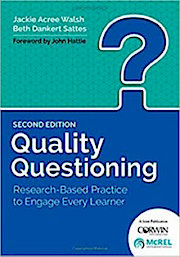 Earlier this month, the Alabama Best Practices Center facilitated a two-day Quality Questioning Institute led by author and ABPC senior consultant Jackie Walsh. More than 70 educators gathered at the Alabama 4-H Center on Lay Lake to learn together and from each other, as they shared strategies they could use to become more effective questioners.
Earlier this month, the Alabama Best Practices Center facilitated a two-day Quality Questioning Institute led by author and ABPC senior consultant Jackie Walsh. More than 70 educators gathered at the Alabama 4-H Center on Lay Lake to learn together and from each other, as they shared strategies they could use to become more effective questioners.
The guiding text for the Institute was the new second edition of Jackie’s Quality Questioning: Research-Based Practice to Engage Every Learner, written with co-author Beth Sattes. The book from Corwin Press is augmented by videos of effective classroom questioning (many featuring Alabama teachers!).
The following photos and captions capture the gist of our two days of learning!
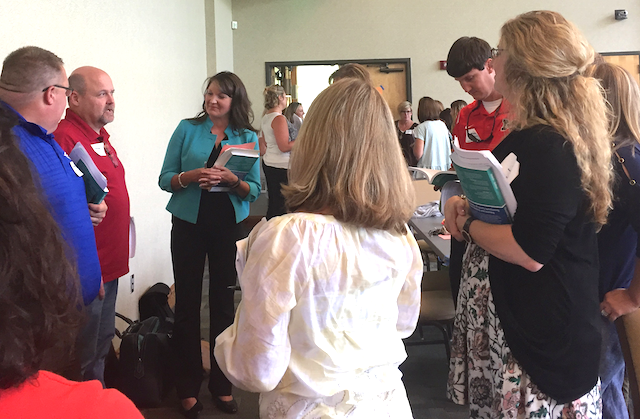
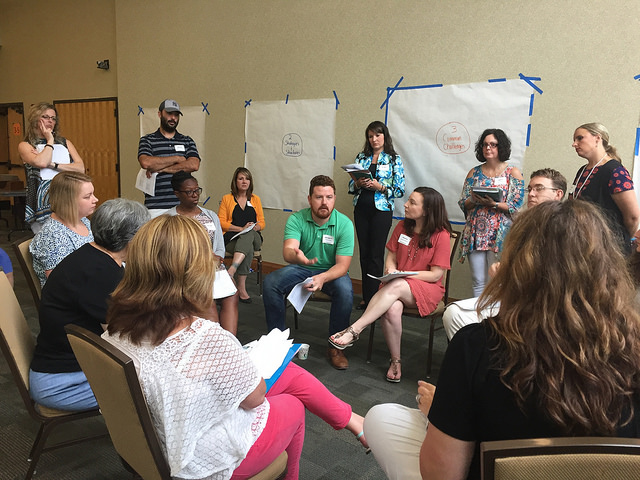
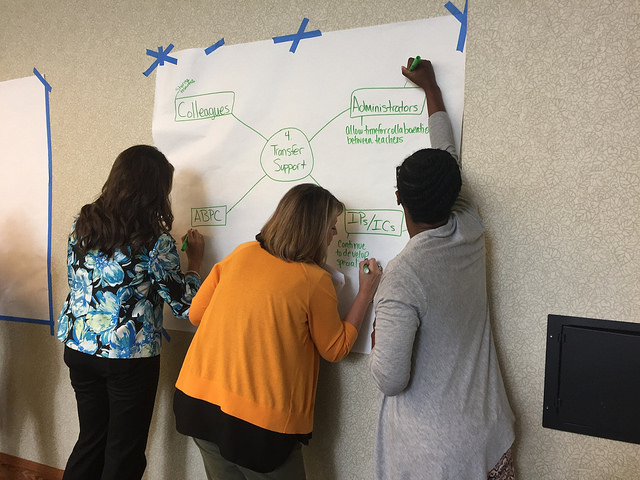
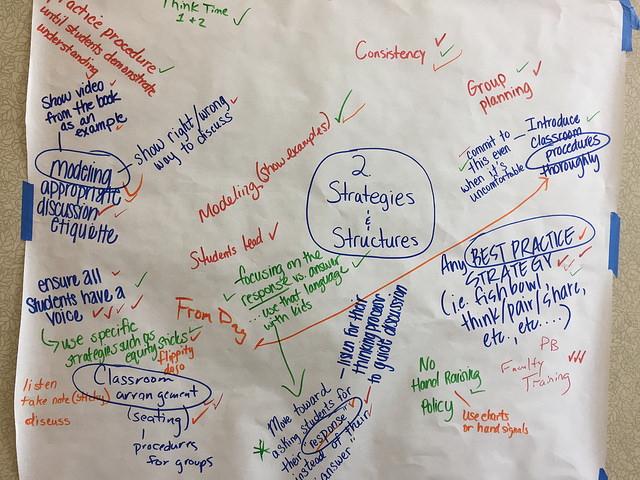
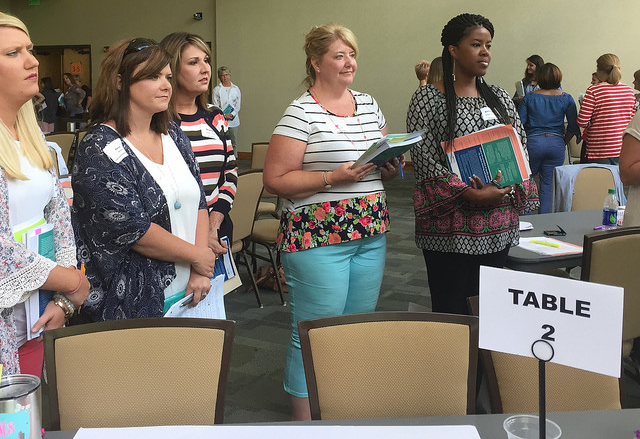
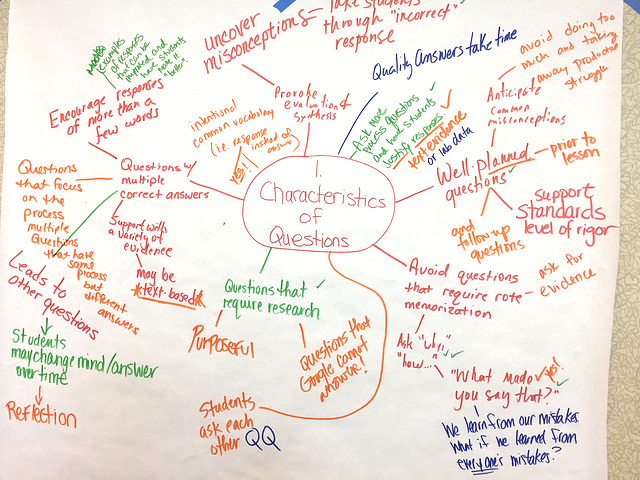
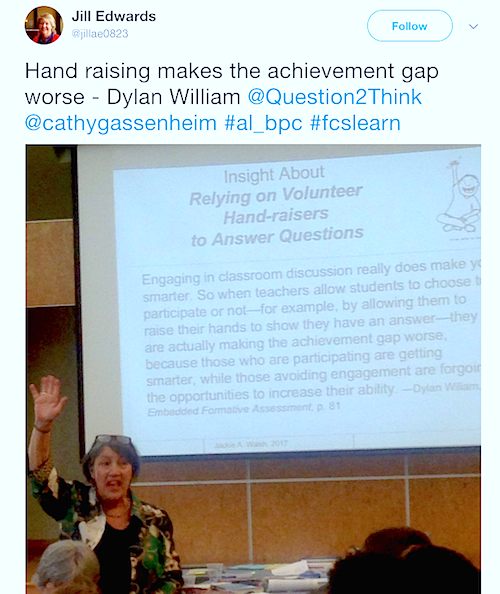
This was the Alabama Best Practices Center’s first effort using our new “institute” model for professional learning. It was a great two days! Watch for future institutes and other ABPC learning opportunities at our upcoming events page.

0 Comments on "QQ Institute: Discovering the Surprising Power of Quality Questioning"